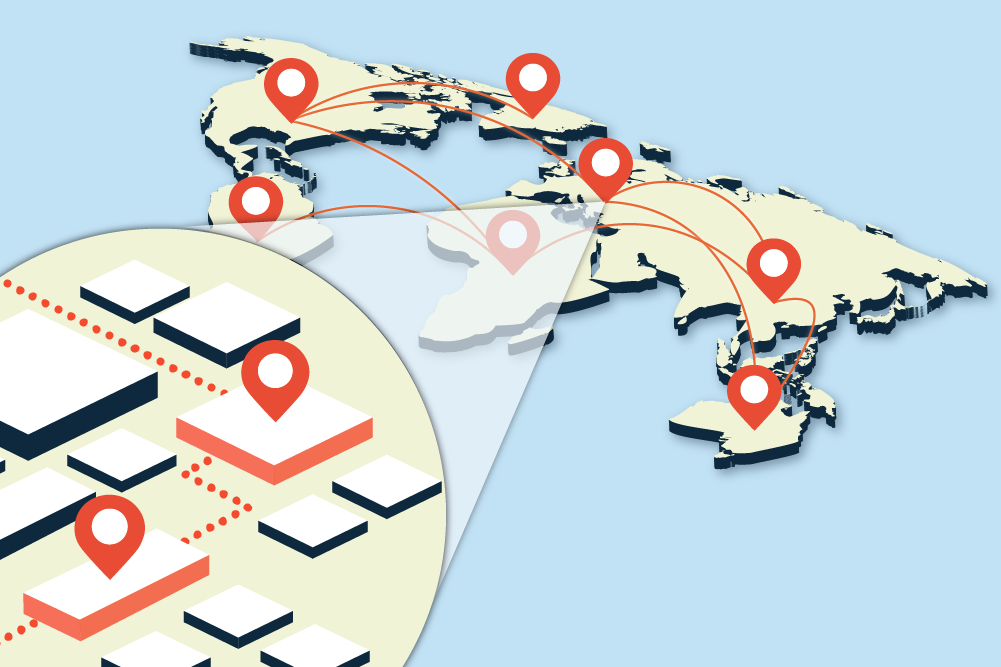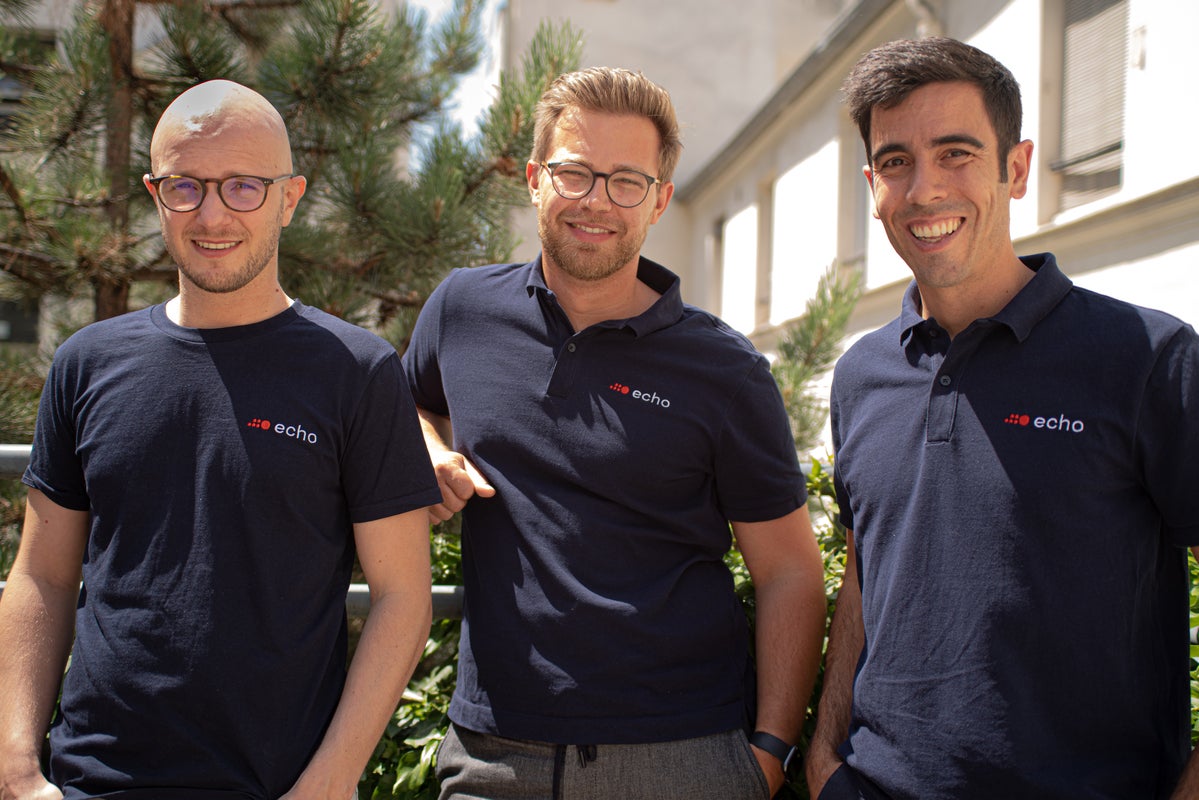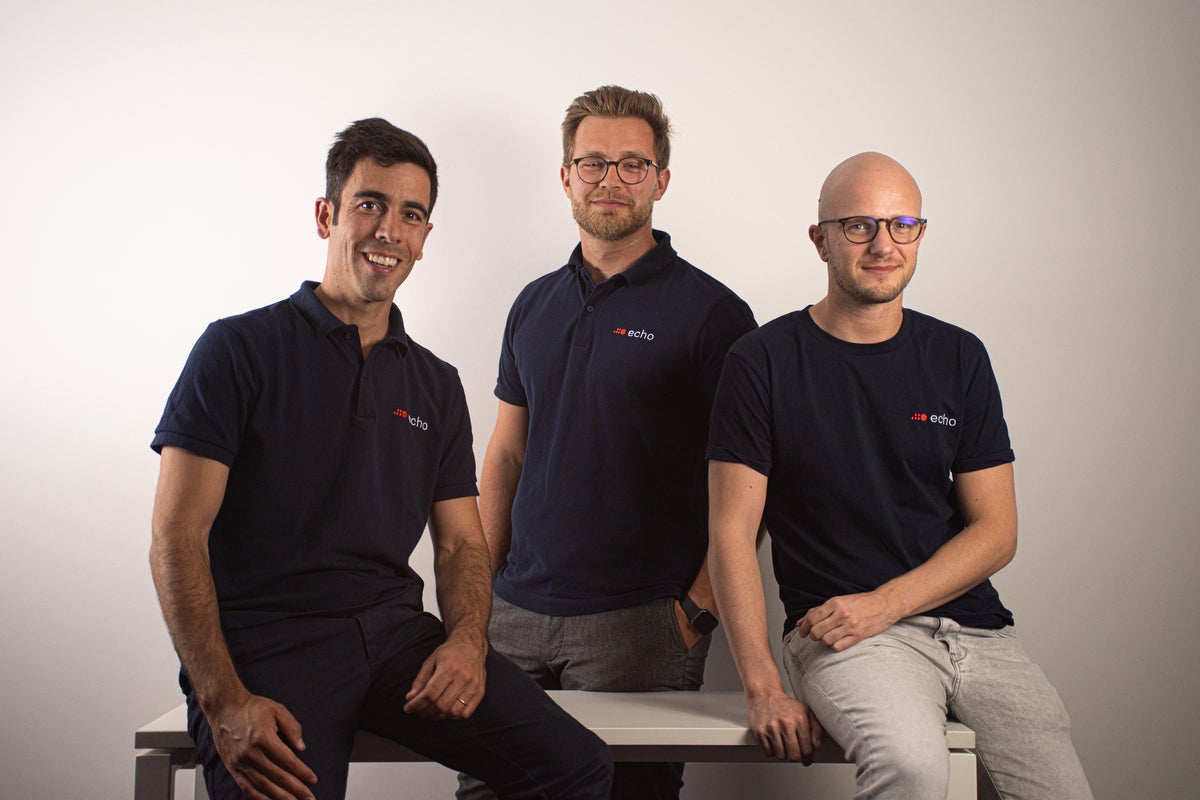Location, location, location: how decoding geospatial data is helping innovative businesses get ahead
THE ARTICLES ON THESE PAGES ARE PRODUCED BY BUSINESS REPORTER, WHICH TAKES SOLE RESPONSIBILITY FOR THE CONTENTS

Echo Analytics is a Business Reporter client
Business Reporter sits down for a Q&A with the three founders of Echo Analytics, Camille Chelpi (CTO), Adam Ejsmont (COO), and Sebastien Rigoigne (CEO), to talk about the rapidly evolving location intelligence industry
Our world is constantly changing, and understanding new consumer trends is a critical task for any business. This means companies struggle to identify new growth opportunities and adapt to change because they don’t have the right resources to see what is happening around them.
To overcome this, innovative businesses have started to leverage data. Yet most of them still ignore the existence and power of location intelligence and geospatial data.
Echo Analytics provides reliable, secure, and scalable geospatial datasets so companies can thrive in their data-driven projects. Could you tell us more about what geospatial data is?
Geospatial data provides information about the physical world related to places on the Earth’s surface.
This data is usually a compilation of many sources such as satellite imagery, census information, address databases, and business listings. These are combined to provide insights describing physical locations and their surroundings – which we call location intelligence.
Geospatial Data helps to produce insights about the way people interact with places in the offline world and the changes that are happening around us. This makes the world easier to understand and helps companies improve decision-making based on accurate information regarding the latest trends.
Founded in 2021, Echo Analytics is one of the pioneers in the location intelligence field in Europe. What inspired you to found Echo Analytics and what makes it different from competitors?

From left to right: Camille Chelpi (CTO), Adam Ejsmont (COO), Sebastien Rigoigne (CEO)
We’ve been in the data industry for years, and we’re fascinated by data. Currently, companies use data to become more efficient, but we’ve also seen how many organisations don’t understand how to use it.
The biggest problem in the location intelligence industry is that most data products available are hard to use. Either they are extremely standardised, and thus very inflexible, or raw. This raw, unprocessed data, requires a lot of work from data science teams to be usable.
This is where we decided to come in. At Echo, we do all the heavy lifting in terms of data collection and processing so that our customers don’t have to invest hundreds of thousands of euros in data lakes and data storage. We extract all the value there is from raw data itself and provide light, plug-and-play data files so that our customers can innovate and go to market faster.
How can location intelligence be of help to businesses across different industries?
Today, we mostly work with companies in the retail, consumer packaged goods (CPG), insurance, advertising, and real estate sectors.
When it comes to retailers and real estate agencies, we usually provide them with insights to gain competitive intelligence around their locations of interest. In both industries, companies want to obtain data on who they are competing with within an area, which locations are getting more traction, where their [retail] customers go before and after visiting a store, and so on – and these are all questions that our data helps them answer. In fact, with location intelligence, retailers and realtors are not only able to identify where to invest next, but they can also understand what they should actually be selling at their locations.
Our teams also work a lot with consumer packaged goods brands, who will usually use our data for unified point of sales (POS) analysis across different countries. Geospatial data gives them precise insights into where their target audience usually shops, what POS need additional merchandise, where to expand, where their target audience goes before or after entering the outlet, and much more.
Advertising companies are also big clients of ours. They usually leverage geospatial data to run different types of geotargeted campaigns. For them, location intelligence improves their targeting around specific points of interest and provides them with insights about macro audiences at a postcode level – all without using any personal data.
Our services also help insurance companies. Knowing how far a fire station is from a warehouse, for example, helps them improve their risk assessments, allowing them to sell smarter policies.
Working with data has no limits. We could also be talking about CRM (customer relationship management) enrichment or how this data is used by hedge funds, but we would probably be sitting here all day! Each time we talk to someone who is interested in location intelligence we find a new use case. What you can do with this data depends on your imagination as much as the industry you are in.
One question comes to mind here. If this data is so powerful then why isn’t everyone using it? What’s stopping them?
First of all, lots of businesses are still not familiar with what geospatial data is and how great of an impact it can have on improving their business. In fact, a lot of the decision-making that businesses have been dealing with for years, such as site selection, supply chain planning, financial forecasting, and more, are things that can be solved using location intelligence, yet companies are unaware of this.
Geospatial data is like the internet used to be in the 90s: no one understood its potential until one day it became essential. We are at a similar inflection point. Most industries have yet to start working with aggregated insights on a higher scale.
In addition to this, one of the most common barriers as to why businesses don’t get involved with geospatial data right now is because of a lack of data scientists in their companies. Many businesses have yet to uncover the benefits of investing in data science teams, and without them, companies struggle to understand the full power of data because they find it hard to use.
What is Echo Analytics doing to make it easier for companies to work with external data then? What makes Echo Analytics unique?
We make working with data and understanding the physical world easy for our clients. We extract all the value from raw datasets that we collect and offer our clients three data packages: Places, Shapes, and Activity. Places data is about the location of millions of points of interest (POIs) in the physical world. It gives insights into their address, name, opening and closing hours, brand affinity, and so on. Shapes data adds attributes to Places, including insights on the building size, shape, and more. Finally, our Activity data helps to clarify foot traffic trends related to Places and gives insights into consumer behaviour. All three packages are cheap to store, process-light, and plug-and-play.
Places, Shapes, and Activity data are unified across all the geographies we cover – Western EU and the USA – which means that companies can scale the data models that they have created in one country and apply them to any other without losing time to recalibrate their data pipelines.
Most importantly, data is our focus. There are a lot of companies out there for whom data is a by-product of their navigation systems or infrastructure they have built. At Echo, we are 100 per cent committed to creating data products, which means we can focus on delivering the best quality.
Today, Echo is working on becoming the leading provider of geospatial data in Europe. Are you planning to expand into additional territories soon?
We started in France, and we have expanded to 15 countries in Europe including the UK, Germany, Italy, and Spain. Now we are moving into the USA, where we are finding a real opportunity to help American businesses combine European and North American data sets. As we move into other regions – we are opening in Australia soon and have plans for Japan – the ability to combine regional data will be a big point of difference. The market is unlimited, and we want to continue driving it forward through innovation.

Where do you see Echo and the location intelligence industry a few years from now?
Echo’s mission is to help organisations innovate faster by using location intelligence. We give companies the right data at the right time to fuel innovation and focus their current resources where it matters most. We are doing this by finding ways to make this data more accessible for organisations to use. By leveraging this data, businesses will have access to a significant new stream of highly valuable business insights.
We are still a start-up, delivering high-quality datasets to help innovative teams who want to do awesome things with data. We have fun doing this. We want to grow but we also want to keep the start-up spirit, so that we can continue to attract the best people to join us in this adventure.
As for the location intelligence industry, we believe it will experience explosive growth in the next couple of years. With the world changing faster than ever before due to a global pandemic, supply chain issues, the war in Ukraine, refugee crises, and rising inflation, maintaining the business status quo is no longer an option. If you want to survive as a business, you need to adjust and look outside your own processes, knowledge, and data.
Originally published on Business Reporter
